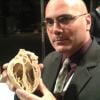I keep close watch on our magazine’s digital analytics for both our website and social media, and it shows me in real time what readers think are the hottest topics in cardiac technology. Here is a top 5 list of some of the most note-worthy recent news items:
1. FDA Harshly Criticizes Abbott, St. Jude For Failure to Address EP Device Safety
The U.S. Food and Drug Administration (FDA) sent the most strongly worded warning letter I have seen to Abbott/St. Jude Medical (SJM) in April, blasting the company for failure to address several issues with its implantable electrophysiology (EP) devices. This included failure to take corrective action for flawed batteries in these devices, shipping recalled products to customers that were then implanted into patients, and failure to adequately protect patients with implanted EP devices from cyber-attacks. The warning letter, issued April 12, was written in response to an FDA inspection that revealed major problems with the Fortify, Unify and Assura (including Quadra) implantable cardioverter defibrillators (ICD) and cardiac resynchronization therapy defibrillator (CRT-D) devices, and the Merlin@home monitoring system used in combination with these devices. “These devices are adulterated…in that the methods used in, or the facilities or controls used for, their manufacture, packing, storage or installation are not in conformity with the current good manufacturing practice requirements,” wrote U.S. Public Health Service Capt. Sean M. Boyd, MPH, deputy director for regulatory affairs, Office of Compliance, Center for Devices and Radiological Health, in the warning letter. “The specific violations noted in this letter and in the inspectional observations issued at the close of the inspection may be symptomatic of serious problems in your firm’s manufacturing and quality management systems. Your firm should investigate and determine the causes of the violations and take prompt actions to correct the violations and bring the products into compliance.”
2. FDA Clears First Dedicated Coronary Bifurcation Stent
The FDA granted pre-market approval (PMA) for the Tryton Side Branch Stent for the treatment of coronary bifurcation lesions involving large side branches. It is the first dedicated bifurcation device to receive regulatory approval in the United States and addresses an unmet need in coronary interventions. About 20-30 percent of patients undergoing percutaneous coronary interventions (PCI) have a bifurcation lesion. Provisional stenting of the main branch is the current standard of care, but in many cases the side branch is not stented, leaving it vulnerable to complications like occlusion requiring bailout stenting. Tryton’s cobalt chromium stent is deployed in the side branch artery using a standard single-wire balloon-expandable stent delivery system. A conventional drug-eluting stent is then placed in the main vessel.
3. New Cardiogenic Shock Protocol Dramatically Increases Survival Rates
Hospitals can dramatically increase heart attack survival rates in patients suffering cardiogenic shock by providing rapid percutaneous hemodynamic support before treating the cause of a heart attack, according to a new analysis that included more than 15,000 patients across the United States. Doctors in Detroit increased survival rates from 50 to 84 percent by following the implementation of a new protocol of using a percutaneous ventricular assist device first, prior to PCI. William W. O’Neill, M.D., medical director of the Center for Structural Heart Disease at Henry Ford Hospital, Detroit, presented the data at ACC.17. He also spoke with me in a video interview.
4. ACC 2017 Late-Breaking Trials
Here is a list of the American College of Cardiology (ACC) 2017 annual meeting late-breaking clinical trials presented at ACC.17 in March, with links to articles specific to many of the trial presentations.
5. Cardiovascular Systems Initiates Voluntary Recall of Atherectomy Saline Infusion Pump
Cardiovascular Systems Inc. (CSI) announced April 18 it had initiated a voluntary recall of its 7-10014 Saline Infusion Pump. CSI initiated a customer communication of the recall by letter and informed customers that they may continue to use the affected pumps until they receive a replacement. The pumps provide saline and lubricant infusion during orbital atherectomy procedures and electrical power to the orbital atherectomy device. CSI has determined that electromagnetic interference present in the hospital environment may cause the pumps to switch to standby mode during use, requiring the pump to be reset prior to continuing treatment.



 November 14, 2025
November 14, 2025 









